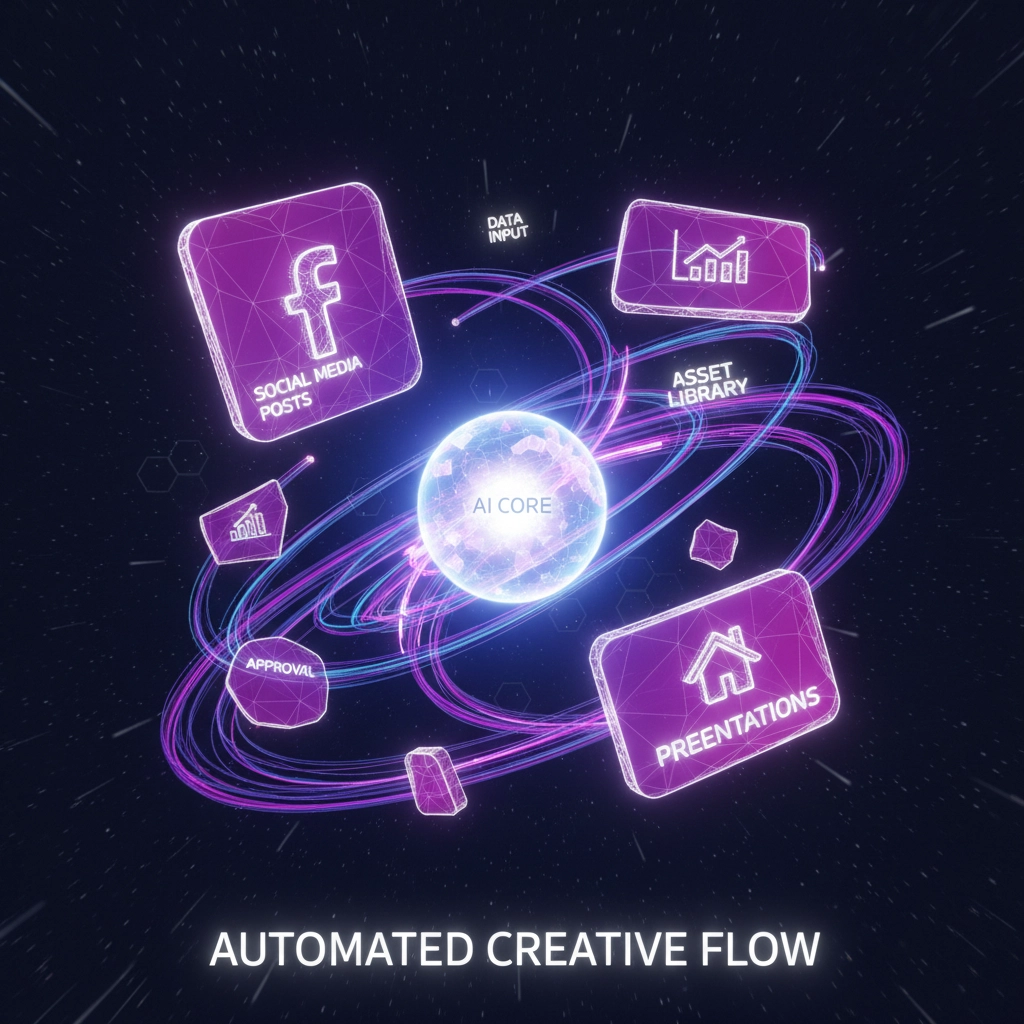High-achieving real estate professionals need systematic approaches to goal planning. AI transforms traditional goal-setting from guesswork into data-driven strategy.
Strategic Framework for AI-Powered Goal Setting
AI tools function as collaborative advisors when used correctly. Ask specific questions rather than generic prompts. “Ask me five questions that will help me identify the most important goals for me in 2025” produces actionable insights.
Generic prompts yield generic advice. Detailed questions generate measurable objectives with clear timelines and relevant metrics.

Structure your AI interactions around:
- Specific revenue targets
- Market positioning objectives
- Client acquisition goals
- Operational efficiency metrics
- Professional development milestones
Data-Driven Market Intelligence
Automated Valuation Models (AVMs) analyze property characteristics, comparable sales, economic indicators, and demographic trends. This intelligence informs strategic decisions rather than relying on intuition.
Predictive analytics platforms forecast:
- Competitive pricing strategies backed by data
- Market entry timing based on buyer demand patterns
- Investment opportunities 12-24 months ahead
- Risk assessment through neighborhood trajectory analysis

High achievers use this data to set realistic yet ambitious targets. Morgan Stanley Research projects AI could deliver $34 billion in efficiency gains for real estate by 2030.
Lead Generation and Client Targeting
Smart targeting systems identify prospects most likely to transact. These tools analyze market trends and homeowner data to pinpoint potential sellers while automating personalized marketing campaigns.
Revaluate uses big data to identify potential movers based on predictive indicators. This concentrates efforts on high-probability opportunities rather than cold outreach.
Remine offers nationwide datasets with advanced analytics. Agents work within existing spheres more effectively using relationship-based goal strategies.
Enhanced Decision-Making Capabilities
AI agents reduce reliance on speculation. Comprehensive insights analyze past transaction records, current conditions, demographic information, and social media trends simultaneously.
This data-driven approach benefits:
- Developers assessing project viability
- Investors evaluating profitability before capital commitment
- Agents optimizing strategies for future market conditions
Decision quality improves when speculation is replaced with comprehensive market analysis.

Content and Marketing Acceleration
Generative AI creates compelling listing descriptions, professional photography sets, and formatted marketing materials instantly. This acceleration enables larger transaction volumes while maintaining quality standards.
RealEstateContent.ai extends capabilities to social media management. Consistent engagement across channels requires minimal manual effort.
High-achievers pursuing revenue targets benefit from:
- Automated content creation
- Professional marketing asset generation
- Scaled social media presence
- Consistent brand messaging
Operational Efficiency Through Automation
AI-powered relationship management tools streamline administrative tasks. Loopin automatically summarizes meetings, creates recaps, and generates action plans.
Cloze manages client follow-ups and reminders by integrating email and social media data into centralized systems. These enhancements redirect mental bandwidth toward revenue-generating activities.

Operational automation includes:
- Meeting summarization and action item creation
- Automated client follow-up sequences
- Centralized communication management
- Task prioritization based on deal probability
Performance Tracking and Pulse Intelligence
Monitoring progress toward goals requires real-time data analysis. Pulse Intelligence provides comprehensive performance metrics that track lead generation, conversion rates, and market positioning effectiveness.
This platform analyzes:
- Lead source performance
- Conversion funnel optimization
- Market opportunity identification
- Competitive positioning metrics
Real-time insights enable course corrections before quarterly reviews. High achievers adjust strategies based on current performance data rather than waiting for retrospective analysis.
Implementation Strategy
Successful AI-assisted goal planning requires systematic execution:
Phase 1: Goal Definition
Use AI to identify specific, measurable objectives aligned with market conditions.
Phase 2: Tool Selection
Choose platforms that support your primary goals rather than adopting every available solution.
Phase 3: Data Integration
Connect AI tools to existing CRM and transaction management systems.
Phase 4: Performance Monitoring
Establish regular review cycles using platforms like Pulse Intelligence for continuous optimization.

Results and Execution Gap
While 90% of commercial real estate companies pilot AI solutions, only 5% achieve all program goals. This gap exists because implementation lacks strategic focus.
Successful adoption requires:
- Clear objective alignment with tool capabilities
- Consistent application rather than sporadic usage
- Integration with existing workflows
- Regular performance evaluation and adjustment
High achievers who approach AI systematically convert potential into measurable results. The technology provides competitive advantages when applied with deliberate strategy and consistent execution.
Getting Started
Begin with one AI tool that addresses your highest-priority goal. Master that application before expanding to additional platforms.
For comprehensive performance tracking and goal monitoring, explore PWRU’s suite of intelligence tools designed specifically for high-achieving real estate professionals.
AI-assisted goal planning transforms ambitious targets into achievable outcomes through data-driven strategy, automated execution, and continuous performance optimization.





